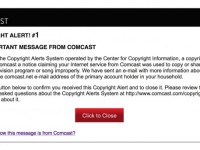The Standing Committee on Canadian Heritage is reportedly set to release its much-anticipated study on the future of media today with a recommendation for a new 5% tax on broadband services to fund Canadian media and the creation of Cancon. The Globe reports that the Conservative MPs on the committee oppose the recommendation. I raised concerns about the possibility of new digital taxes last fall, fearing that Canadian Heritage Minister Melanie Joly would implement them as part of her review of Cancon in a digital world and noting that the Ontario government appeared supportive of the approach. Joly has yet to outline her plans which are scheduled for release in September, but has refused to rule out Internet taxes and regulation. I will update this post once the full report is released, but based on the Globe report it must be stated that an Internet tax to fund Canadian content is a terrible policy choice with exceptionally harmful effects on the poorest and most vulnerable households in Canada.
Archive for June, 2017
The Upcoming 2017 Copyright Act Review: What Next for Canadian Copyright
This week Policy Options launched a new series on copyright reform with plans to provide perspectives from across the spectrum. I was delighted to write the first published piece, which starts by making the case that the Conservative government got far more right than wrong in 2012. Canadian copyright law is widely regarded as one of the most innovative in the world with unique, forward-looking provisions (non-commercial user generated content, notice-and-notice) and flexible fair dealing. The last five years have largely achieved what the government had in mind as the days of labelling Canada a “piracy haven” are over, the cultural industries such as movies and music are enjoying record earnings, and new digital services have found great success in Canada.
So, as Parliament prepares for a review of the law later this year, what’s next for Canadian copyright?
Putting the Internet at the Centre: Taking Stock of Jean-Pierre Blais’ Term as CRTC Chair
Barring a last minute extension, CRTC Chair Jean-Pierre Blais’ term will come to an end this week. For those new to the CRTC, it is difficult to overstate just how much changed both procedurally and substantively during his five years as chair. For some context, consider a 2006 invitation I received to participate on a panel at the Telecommunications Invitational Summit, a by-invitation-only event that brought together many in the industry for off-the-record, Chatham House Rules discussions on issues of the day. I was grateful for the invitation – I was there to defend the then-emerging issue of net neutrality – but recall being shocked walking into the venue to see senior telecom executives shooting billiards and having a drink with CRTC commissioners.
It is fair to say that those off-the-record bonding-style events between the regulator and the regulated became a thing of the past under Blais. In fact, weeks after he was named chair of the CRTC, I was called into his office in one of several meetings he had with consumer and public interest voices as his first order of business. I had a mixed history with Blais to that point (he was the lead on copyright policy at Canadian Heritage for many years), but he left no doubt that bringing a public interest voice and perspective to the CRTC was his top priority.
Copyright Misuse Emerges as a Political Issue: QP Questions on Notice-and-Notice Abuse
The problems associated with Canada’s copyright notice-and-notice system have been well chronicled. The Canadian system – which was acknowledged as equivalent to the U.S. notice-and-takedown approach in the TPP – allows rights holders to send notifications alleging infringement to intermediaries who are obligated to forward the notifications to their subscribers. The intermediary does not disclose the identity of the subscriber and it falls to the rights holder to pursue further action if they so choose. Unfortunately, the failure to include regulations stipulating what may be included in a forwarded notice has led to rampant misuse of the system, with anti-piracy companies sending millions of notifications that include demands for payments over unproven allegations.
The need to fix the notice-and-notice system should be a 2017 Copyright Act review priority, though the solution lies in adopting regulations that do not require a legislative overhaul. The issue is attracting increasing attention and made its way onto the floor of the House of Commons this week as NDP MP Brian Masse directly asked Prime Minister Justin Trudeau about it:
Government Caves to Lobbying Pressure: Bains Blocks Consumer Redress for Spam and Spyware Losses
On May 17, 2005, the National Task Force on Spam, which included stakeholders from the across the spectrum including the Canadian Marketing Association, ITAC, Bell, CAIP, and consumer groups, presented its final report to then-Industry Minister David Emerson. The unanimous report included the following recommendation:
There should be an appropriate private right of action available to persons, both individuals and corporations. There should be meaningful statutory damages available to persons who bring civil action.
The inclusion of a private right of action was no small matter. I was a member of the Task Force and recall discussion of lawsuits launched in the United States by large ISPs and Internet companies such as Microsoft and Amazon that had proven effective. It took nine years for the task force recommendations to become law when all parties – Conservative, Liberal, NDP and Bloc – supported the resulting legislation. The private right of action provision was to have taken an additional three years as the Conservative government chose to delay its implementation until July 2017 to give businesses three years to ensure compliance with Canada’s anti-spam law.
Yesterday, Innovation, Science and Economic Development Minister Navdeep Bains indefinitely suspended the private right of action before it could take effect. In doing so, Bains blocked important consumer redress for harmful spam and spyware that would have supplemented enforcement efforts overwhelmed by spam complaints. Bains indicated that the statutorily-mandated review of the law, which is required after three years, will be used to assess the law and the private right of action (the Canadian Federation of Independent Business holds out hope that it will be struck down permanently).











